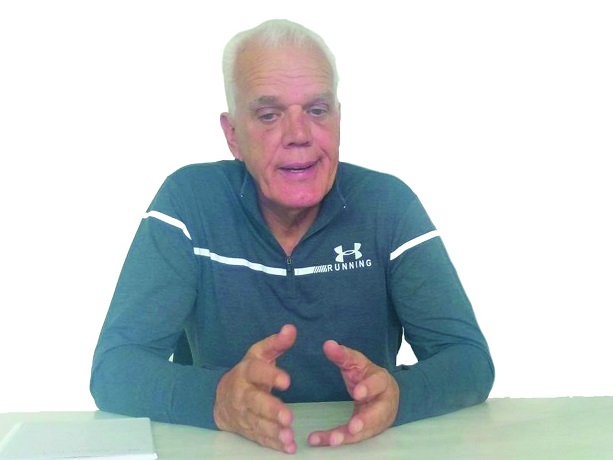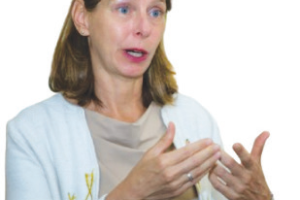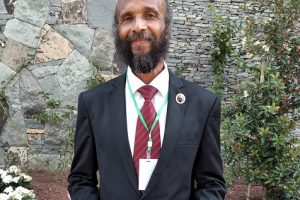
Today’s Guest Joost Heij is currently working as a Country Manager Trading Organic Ethiopia at Selet Hulling PLC / Sunvado Manufacturing PLC. He is serving the company since November 2015 till now.
Joost received a bachelor degree from University of Groningen in contemporary history. He then earned Master’s Degree in law. People, who know him well witnessed that he is a smart and intelligent person with good management skills.
Sunvado, is now exporting organic avocado oil from Ethiopia as of 2020 with the vision of offering international market access to smallholder farmers and to boost their income. The Ethiopian Herald made a short stay with Joost to know more about the new project in progress, its challenges and future prospects. Have a nice read!
First of all, I would like to thank you on behalf of our esteemed readers for your willingness to make this interview a success. Would you tell us when your company set up the avocado oil producing and exporting business in Ethiopia? What inspired it to do so?
Sunvado Manufacturing PLC is owned by Trading Organic, a company from the Netherlands and one of the biggest traders / distributors of organic food ingredients in the world. We already had a presence in Ethiopia through Selet Hulling PLC, dealing in organic sesame (with a factory in Legetafo and sourcing operations in Humera).
As we are always looking for new opportunities, we followed up on the suggestion of a friend of mine to look at the production of avocado oil. There is a lot of avocado in Ethiopia and we saw long term opportunities. We were looking for other investment opportunities and decided to go for organic avocado oil. Afterwards, we did research and as an organic company most of the avocados are organic by default, which for us was very attractive.
On the other hand, we found out that there is a shortage of avocado oil in the world. That means the demand for avocado is bigger than the supply that provides for the international market.
We then started Avocado oil production in January 2020 with a total investment capital of 3 million Euros. The processing facility is located in Yirgalem, Southern part of Ethiopia where local organic smallholder farmers are greatly producing avocado.
The United States is the main market destination for our organic avocado products. At the same time, there is a growing demand for organic food in Europe, Asia especially after COVID-19 pandemic when people become more aware of health issues. The demand for organic products in general has been and is growing as people prefer to get something hygienic and healthy.
How do you evaluate the overall performance of your company in terms of producing and supplying avocado oil to the international market? Do you have some figures that show the result gained so far?
It is always difficult to set up a new company as it takes time to make it work. The learning curve was very steep and made considerable losses in those days. The quandary is not associated with the demand in the international markets but we miscalculated the oil yield which is much lower than the anticipated and we pay high prices for the avocados. By then, sourcing the avocados is a major challenge for the new project. Surprisingly, we did a lot of research but made mistakes in research as we anticipated much higher yield than we got.
Addressing problems related to sourcing, our oil is now exported to Holland for the refinery process before it is exported for the US market. As it requires huge capital, the company was not able to establish a refinery in Ethiopia. However, the company has gained 1.3 million dollars exporting avocado oil from Ethiopia in the first two months of 2022.
Could you tell us the challenges that the company has been facing so far? How could you deal with it and be able to sustain in the business?
In agro processing, three important factors are decisive to be successful in the business. The first is yield. That thing that makes you bother is – What percentage of oil can you press out of 100 kgs of avocados? The Second thing is -the availability of raw materials. There should be sufficient avocado supply as a raw material on a permanent basis. The third is the pricing of the raw material. We are struggling on the first and third factors although we see some improvement in the current year.
Also what is not helping is there are some companies entering in this business who are highly interested in dollars and sell avocados at the lowest price so as to subsidize their import business. Unfortunately in my opinion, this is not the way to build a sustainable export industry.
The company is working together with GIZ as a public private partnership (PPP) development programme. The goal is to build a sustainable supply chain to produce organic avocado and sesame oil, from cultivation and processing, right through to export. Practical measures include establishing a local infrastructure for avocado and sesame oil production. Local people are to be trained in the skills required along the entire value chain, creating 300 new jobs in the process.
The partners are implementing a ‘Farmer Business School’ approach to provide small scale farmers from cooperatives with training in sustainable harvesting and cultivation methods. By training trainers who can pass on their newly gained knowledge, the project hopes to reach up to 50,000 small scale farmers. In addition to training, practical assistance will be given in the form of avocado harvesting, tree climbing and safety equipment.
In line with its sustainable approach, the project is evaluating waste streams as an additional source of income. This includes a composting system as well as finding ways to reuse and market the pressed pulp, cores and skin from avocados.
Premium prices and stable market access, valuing the farmers’ contribution to a diversify agro forestry system, are to be achieved by assisting them with organic and social certification and by securing fair purchase agreements.
Since Ethiopia wishes to place production and value creation from avocados on a sound footing, the partners work with local institutes on research into and the introduction of improved varieties of avocado as well as on suitable production and harvesting techniques and are setting up avocado tree nurseries.
The nursery project offers training on all aspects of organic production and good agricultural practices. This has led to an improvement in farm management among smallholders. The introduction of Farmer Business Schools (FBS) has helped more chain.
We continue to improve our sourcing together with GIZ. We do a lot for the local community (training, employment, knowledge transfer, setting up nurseries etc). We do need more support and a better strategy from the government to arrive at a managed development of this industry because in the long term it can be a success story.
What will be the plan of the company in terms of expanding the supply of avocado oil to the international market and increasing foreign currency income?
Our organic avocados are not grown on large scale commercial plantations. Instead, they grow on organic coffee farms, where the farmers use the avocado trees to provide shade for their coffee. Before the opening of the Sunvado processing facility, the organic avocado farmers did not have access to an export market for their avocados. Some of the avocados were sold on the local market at very low prices, but most of the avocados were not collected or harvested and left to rot. We made it our mission to change that.
Now that the Sunvado facility is up-and-running, the farmers can obtain a better price for their avocados. In addition, we helped to set up the organic certification for our farmers, which gives them access to a Premium organic price.
At the moment, we are fighting for survival and are doing everything to make sure the company has a solid foundation. Now is too early to think about expansion.
How do you explain the relations with other stakeholders working in the area?
I would say our relations with all stakeholders are good, especially with the Sidama IPDC. We would like to see the (local) government develop a clear strategy and manage development policy to build up this industry. As I am convinced, in the long term (4-5 years) this kind of activity can greatly contribute to the region and the country.
I think we need good cooperation between policy makers and producers. It can be a good business but it needs a common strategy, and above all an understanding that the results will be long term and not overnight.
As a shareholder of a company invested in the agro-forestry, would you please comment on agricultural practices here in Ethiopia?
What I think is the level of agriculture is unfortunately not yet up to the standard. So, there are different approaches. I find it difficult to make a judgment on all these approaches. I have become more convinced that it is a question of inputs and knowledge. If you make more speculations, the amount of revenue smallholder farmers get from their small plot of land, is probably quite good. But if they get better and affordable inputs, they can increase yields.
The other important thing is knowledge. Farming knowledge is an area where you should begin whatever you’ve got to do with agriculture. You have to make sure that the farmer knows what he’s doing. The farmer needs to have the knowledge to grow whatever he wants to grow in the best possible way. He has to have access to inputs, like fertilizer and all these kinds of things to make his yield better. He has to know how to use pesticides in a bid to protect the produce from parasites or diseases.
That is I think where the focus should be. The diversified climatic condition is conducive for agriculture. And I think the government wants to diversify more. So, you can have a diversified set of agricultural products in this country and if farmers start to produce more, the prices for agricultural products will come down. If this is so, there will be more possibilities for agro processing as it requires the availability of quality raw materials.
Ethiopia is the second largest exporter of sesame in the world behind India. Despite excellent cultivation conditions, insufficient knowledge regarding cultivation, harvesting and processing leads to harvest losses. And 95 per cent of sesame is exported in unprocessed form. As a result, the country fails to exploit its potential for huge added value. What is more, Ethiopian producers often do not have access to premium markets as their crops fail to meet high international standards and food quality requirements. Rectifying this would allow them to generate the higher incomes that have eluded them so far.
What should the Ethiopian government do to further attract more investors?
Wow, I think one of the issues that should be solved is – land. It is a very contentious issue here. And I don’t know how to solve that, to be honest. If somebody wants to invest in farming, land should be available.
Apart from land, input should be available for investors who are interested to invest in agro processing. For this to happen, offering short and long term training for farmers is advisable as it has an impact to increase yields.
Mechanization could be another thing that should be focused on. But, you have to be very careful also with mechanization as small plots are not suitable for making mechanization. I think the government should focus on making sure inputs are available and the farmers have the right dedication to work.
Would you tell us the effort your company made so far to produce and export quality avocado oil which pleased the interest of customers?
Hass is the best Avocado variety to do Avocado oil business. Accordingly, there has been a lot of planting going on over the last couple of years. The company can also make oil from the indigenous varieties even though the yield is lower. However, this doesn’t mean that it can be profitable. That is the thing we are struggling to deal with. As they are under financial pressures, farmers are always picking the immature avocados and bringing them to the market and selling them, whereas if you want to make avocado oil, you have to have a good yield of mature avocados. Offering training for farmers encourages them to keep the avocados longer on the tree. As the period of stay in trees is longer, avocados are becoming more valuable both for us and them. If I can buy the mature avocados, I can also pay a higher price. A one percent yield increase in this business makes a big difference. We are trying to induce and to motivate the farmers to keep the outcomes longer on the tree and that will work well as the company can pay a higher price.
If you don’t mind, would you rate the effectiveness of your company?
I don’t think we are at the level that we want to be. It has been a very steep learning curve. We’re still learning and improving our jobs every day. There is no easy money. It takes four or five years for the company to be effective.
There’s a lot of work that needs to be done. And the thing is you always start with the big things, and then the things become smaller and smaller. It is all more fine tuning, of course, at the end. But there are still a lot of things that we have to do. Like I said, together with GIZ, we are going to give out 100,000 Hass trees. One of the things we have to do is increase the percentage of Hass avocados that we are going to buy every year. So, we were going to give out these trees to the farmers and then in three or four years, these trees are going to get fruit. That will help us to supply avocado oil as per our level of desire.
Thank you for your cooperation!
You are welcome!
BY GIRMACHEW GASHAW
The Ethiopian Herald 7 May 2022




